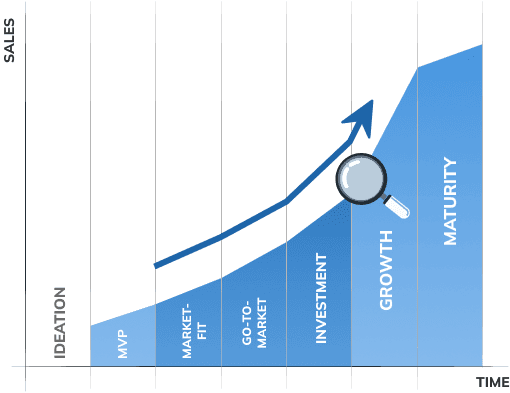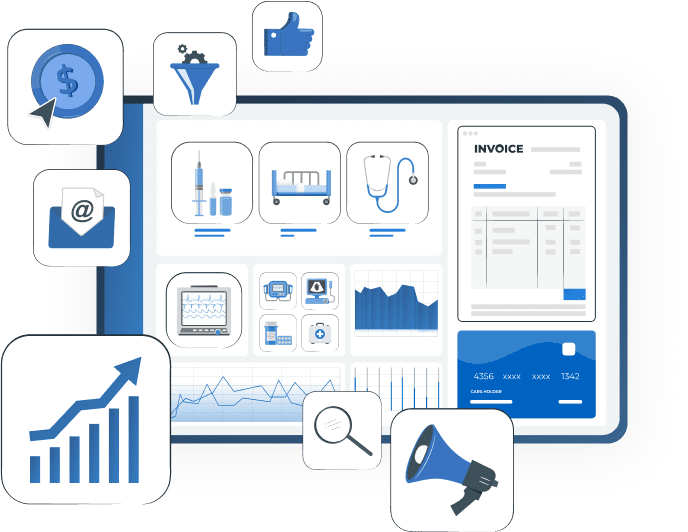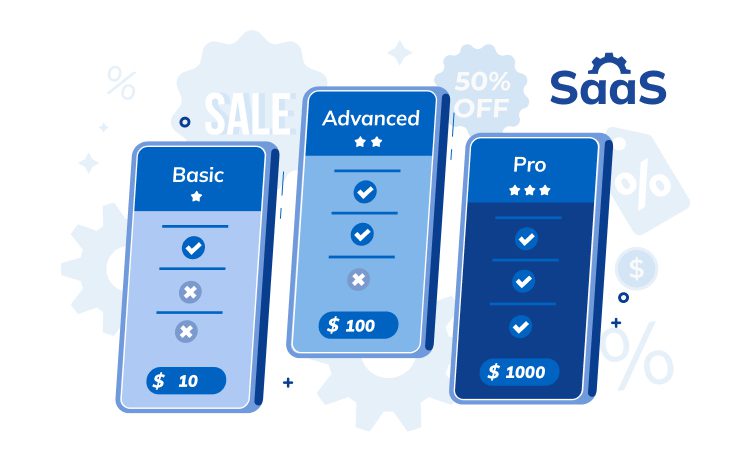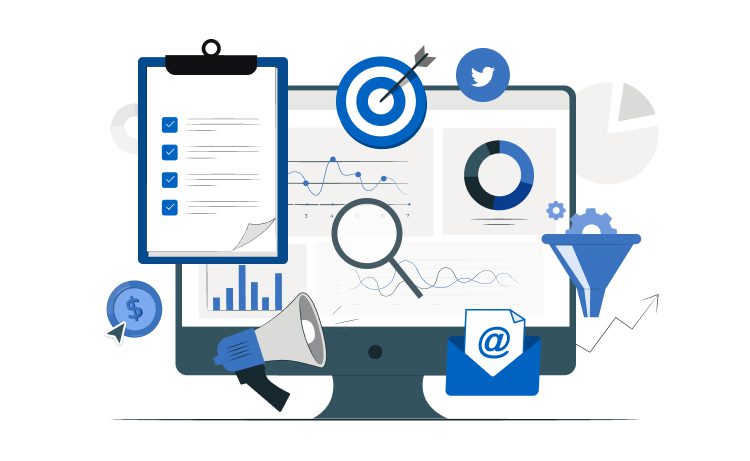B2B SaaS Marketing Agency


Our Client Achievements

Grow Your SaaS With Us
We can kickstart the marketing for your SaaS business at all development stages
Whether you’re in the early idea phase, have an MVP, or are expanding into new markets, we can integrate with your existing SaaS marketing team or take over entirely.
We can help you develop a suite of services designed to meet your needs, including market research, competitor analysis, branding, lead generation, and content creation.
SaaS Marketing Industries
SaaS Marketing Competencies
We can help your B2B SaaS product quickly outperform the market with tailored SEO requirements, audience research, the right keywords, and a focus on quality content.
Let’s identify your requirements so our professional writers, social media managers, and email marketing managers can create and deliver high-quality content to your target audience.

Looking for a B2B SaaS Marketing Agency?
Our Expertise
Medical Billing SaaS Case Study
Discover how we propelled a cloud DME software into the top 5 market leaders within just 6 months, contributing $3.9 million in LTV to the sales pipeline.

Why Choose Our SaaS Marketing Agency?
How is your B2B SaaS marketing different from regular marketing?
B2B SaaS marketing targets a particular audience of tech-focused decision-makers, including CTOs, IT managers, and software developers. As a result, the sales cycle for SaaS products often involves multiple decision-makers and a trial period before conversion.
Since SaaS products usually use a subscription-based pricing model, SaaS marketing must highlight the continuous value and benefits of the product to encourage customers to renew. Thus, building trust and nurturing relationships over time is crucial for B2B SaaS marketing strategies.
How much do SaaS marketing services cost?
The cost of SaaS marketing services depends on several factors, such as the scope and complexity of your marketing needs, the size and competitiveness of your market, the level of customization and personalization you require, and the type of collaboration you choose.
Our SaaS marketing agency services are priced on a monthly retainer basis starting from $3,000 per month per project. We offer flexible pricing options and tailored packages that suit your budget and preferences.
How long does it take to see results of B2B SaaS marketing?
The timeline for seeing results from Glorium SaaS Marketing Agency varies depending on factors such as your product’s current level, the state of your marketing efforts, industry complexity, competition and saturation in your market, content quality and relevance, and past marketing effectiveness and efficiency.
Generally, it takes several months to a year to see significant improvements in your website traffic, lead generation, conversion rates, and revenue. However, we work closely with you to set realistic expectations, establish measurable goals and metrics, and regularly track and analyze your progress.
Can your SaaS marketing agency help me with my customer acquisition and retention?
Yes, Glorium SaaS Marketing Agency can help you with customer acquisition and retention by using various strategies and tactics tailored to your business needs and goals. For customer acquisition, we target and attract high-quality leads through optimized landing pages, engaging content, targeted ads, and personalized emails.
For customer retention, we focus on improving user experience, providing valuable and relevant content, offering incentives and loyalty programs, and using data analytics to identify and address customer needs and pain points. But keep in mind that we don’t promise quick results such as “10,000 users during the first month”.
How do I measure the success of B2B SaaS marketing?
The success of B2B SaaS marketing can be measured by various metrics and indicators that reflect your business goals and objectives, such as website traffic, lead generation, conversion rates, customer acquisition cost (CAC), customer lifetime value (CLV), retention rate, churn rate, revenue growth, and return on investment (ROI).
We use a combination of analytics tools and reports to track and analyze your marketing performance and provide you with actionable insights and recommendations. We also communicate with you regularly to ensure that our strategies and tactics align with your changing needs and priorities.
Blog
The Ultimate Guide to Effective Saas Marketing Strategies
As technology evolves, so does the digital marketing industry, making it crucial for SaaS companies to stay ahead of trends and adapt quickly. The global SaaS market, valued at $197 billion in 2023, is projected to grow exponentially, reaching an estimated $232 billion by 2024, reflecting a general annual growth rate (CAGR) of 18.7%.
As research and data show, the SaaS market is expanding, and companies face the challenge of standing out in a crowded and competitive sector. Effective marketing strategies have become crucial for attracting and retaining customers, driving revenue growth, and achieving long-term success.
The increasing adoption of cloud computing, the need for cost-effective software solutions, and the rise of remote work all contribute to the market’s growth.
AI, marketing automation, personalization, and other trends make it imperative that companies devise effective B2B SaaS strategies.
We created this ultimate guide to effective SaaS marketing strategies to pave the path for your SaaS business and answer questions about the industry.
How SaaS Marketing Differs from Traditional Marketing
SaaS marketing promotes and sells software products delivered over the internet as a service, typically through a subscription-based model. The fundamental difference between traditional and SaaS marketing is their promotion model. While traditional marketing often focuses on one-time sales, SaaS marketing builds ongoing relationships and fosters customer loyalty to ensure recurring revenue.
Subscription model vs. one-time sales
We all know how traditional businesses sell their products – they rely on single transactions and conventional marketing strategies. In contrast, SaaS companies benefit from monthly or annual subscriptions.
While these necessitate continuous engagement strategies to retain customers long-term, the audience also benefits from subscription models:
- Payment structure
- Broader access to content
- Flexibility
Customer acquisition
One key difference between SaaS marketing and traditional marketing lies in the emphasis on customer acquisition and retention.
In the SaaS model, companies must continuously attract new customers while ensuring existing ones remain satisfied and renew their subscriptions. This requires a strategic approach to nurturing customer relationships and delivering consistent value over time.
Famous and profitable companies like Dropxob, a popular cloud storage and file-sharing service, use SaaS marketing strategies to attract and retain users. Dropbox hit $10 billion in only 10 years by using referral programs, content marketing, and collaborations with other software providers to expand its user base and increase customer retention.
Traditional marketing, on the other hand, often focuses on one-time sales transactions. Companies aim to sell their products or services and move on to the next customer. While customer satisfaction is still important, the emphasis is primarily on closing individual deals rather than building long-term relationships.
Speed of innovation
Innovation for SaaS companies is a fundamental component of the business model. Traditional marketing approaches are used in more static industries where product cycles are longer and change less frequently.
Here’s why innovation is especially critical for SaaS companies:
- Continuous product improvement: SaaS companies operate in a highly dynamic environment where customer expectations evolve rapidly due to technological advancements
- Real-time responsiveness: A data-driven approach enables SaaS companies to innovate based on actual user needs and usage patterns, unlike traditional marketing, which may rely more heavily on market research that can quickly become outdated
- Pricing flexibility: SaaS companies often experiment with different subscription tiers, freemium models, and pricing strategies that adapt to market demands and consumer behavior.
So, SaaS companies require marketing strategies that can keep up with the industry’s technological development.
What are SaaS Marketing Challenges?
Every professional B2B SaaS marketing agency will tell you that a market without challenges doesn’t exist. SaaS marketing also has unique pitfalls that companies must navigate to succeed.
Customer acquisition and retention
SaaS marketing agencies constantly work to attract new customers and retain existing ones, a challenge that is inherent in the SaaS model. Companies must find effective ways to attract and engage users while minimizing churn.
SaaS marketing agencies employ various strategies to attract and engage users effectively:
- Content marketing
- Search engine optimization
- Pay-per-click and paid advertising
- Social media marketing
- Email marketing
- Customer onboarding and education
- Retargeting strategies
- Influencer and affiliate marketing
More on these strategies later.
Demonstrating value
SaaS products are often intangible, making it more challenging to communicate their value proposition effectively. Companies must clearly articulate the benefits and return on investment (ROI) to potential customers.
Using case studies, customer testimonials, and detailed product demonstrations are common tactics. Digital marketing services play a crucial role here, helping to clarify and communicate value propositions across various channels, making them accessible and understandable to the target audience.
Subscription fatigue
As the number of SaaS offerings continues to grow, customers may experience subscription fatigue, making it harder to justify additional expenses for new services. To combat this, SaaS companies, often with the help of a SaaS marketing agency, must differentiate their offerings by highlighting unique features and benefits that address specific customer needs.
Tailoring packages and pricing to offer more flexibility can also help alleviate subscription fatigue. Additionally, implementing a customer-centric marketing strategy can help reinforce the value of the service, making the subscription seem worthwhile.
Competition
The SaaS market is highly competitive, with new entrants and established players vying for market share. Differentiating one’s offering and maintaining a competitive edge is an ongoing challenge.
Social media marketing and content marketing strategies are used to amplify a company’s distinctiveness and industry authority. Best SaaS marketing agencies will often conduct comprehensive competitor analyses to help SaaS companies position themselves in a way that capitalizes on gaps in the market or areas where they can outperform competitors.
Pricing and packaging
Determining the optimal pricing and packaging structure for SaaS products can be complex, as companies must balance profitability with customer acquisition and retention goals.
Effective SaaS marketing strategies involve data analysis and market research to understand customer price sensitivity and preference. Digital marketing services can aid with A/B testing different pricing models and packages in real time to determine which combinations perform best.
How to Create an Effective Marketing Strategy for Your SaaS Business
Just like any other business, your software as a service needs a solid marketing plan. A good marketing strategy will help you spread the word about your SaaS product, find and target the right customers for your offering, and keep those paying customers subscribed for the long haul once they’ve signed up.
As a SaaS marketing agency, we have years of experience using these techniques to create SaaS marketing strategies for our clients. In this article, we want to share 6 essential steps for a successful SaaS marketing strategy:
- Set clear goals
- Understand and pinpoint your target audience
- Deliver value through content
- Choose optimal channels for inbound marketing
- Employ paid advertising
- Enhance outreach with social media and influencer marketing
Set clear goals
The goals of a SaaS marketing campaign must be specific, measurable, attainable, relevant, and time-bound (SMART). You must also align your marketing efforts with your overall business objectives.
Here’s a list of example goals that a SaaS marketing agency might help its clients establish:
Increase monthly sign-ups:
Aim to boost the number of new subscriptions by 20% within the next quarter through targeted inbound marketing campaigns and optimized landing pages.
Enhance customer retention rates:
Improve retention by implementing marketing automation strategies that engage existing customers with regular updates and personalized content.
Grow website traffic:
Increase organic traffic by 30% over the next year by enhancing SEO strategies and content marketing efforts, focusing on high-value keywords relevant to SaaS businesses.
Expand email subscriber list:
Aim to grow the email list by 25% in four months using lead magnets like free trials or downloadable whitepapers promoted through digital marketing channels.
Boost engagement on social media platforms:
Increase engagement rates by 40% within three months by leveraging social media and influencer marketing to showcase customer success stories and product updates.
Increase lead conversion rates:
Improve the conversion rate of leads to paying customers by 10% in the next six months through refined demand generation strategies and A/B testing of marketing messages.
Enhance brand awareness:
Increase brand awareness, measured by a 50% rise in brand mentions across digital platforms within the next year, utilizing comprehensive content marketing and public relations campaigns.
Maximize ROI from paid advertising:
Achieve a 20% increase in return on investment from paid advertising campaigns within the next quarter by using more targeted ad placements and refining audience segmentation.
Drive up-sells and cross-sells:
Increase up-sells and cross-sells by 30% over the next six months using marketing automation tools to offer personalized product recommendations to existing customers.
Achieve specific revenue targets:
Hit specific quarterly revenue targets that represent a 25% increase year-over-year through integrated SaaS marketing strategies that align digital with sales objectives.
Understand and pinpoint your target audience
Understanding your audience is crucial for any SaaS marketing strategy, as it ensures that marketing strategies are directed toward those who are most likely to benefit from and subscribe to the service.
A deep understanding of the audience can significantly enhance demand generation, improve conversion rates, and ultimately contribute to the growth and sustainability of SaaS businesses. As a customer growth marketing agency, we gathered 7 essential tactics to help you understand your audience better:
Market Segmentation:
Divide the potential market into segments based on variables such as industry, company size, role within the company, or geographic location.
This helps in creating more targeted and relevant marketing campaigns. For example, a SaaS marketing agency might develop distinct strategies for small businesses versus enterprise clients, acknowledging their different needs and pain points.
Customer Interviews and Feedback:
Interviewing current and potential customers can provide insights into their challenges, needs, and usage patterns. This direct feedback is invaluable for refining product offerings and marketing messages. Based on this feedback, digital marketing efforts can be adjusted to better meet the needs of the target audience.
Persona Development:
Create detailed buyer personas that represent typical customers. These personas should include demographic information, job roles, goals, pain points, and buying behavior. A growth marketing agency will use these personas to guide content creation, email marketing, and paid advertising strategies.
Analytical Tools and Data Analysis:
Use marketing automation and analytics tools to gather data on how users interact with your website and marketing campaigns. This data helps identify which content is most engaging, which features attract the most attention, and where users drop off in the sales funnel.
A/B Testing:
Regularly test different aspects of your marketing campaigns, from email subject lines to landing page designs. This can reveal the preferences and behaviors of your target audience, allowing SaaS businesses to optimize their marketing for better engagement and conversion.
Social Media Engagement:
Monitor social media platforms to understand the conversations around your brand and competitors. This can provide real-time insights into market trends and customer sentiment. Social media marketing is a channel for dissemination and a rich source of audience data.
Competitive Analysis:
Keep an eye on competitors—what they are doing well and where they are failing can offer insights into what the target audience values. Digital marketing and SEO tools can be used to analyze competitors’ online strategies, helping uncover market gaps and opportunities.
Deliver value through content
Content that provides value helps establish your SaaS business as a thought leader, builds trust with your audience, and supports SEO efforts by driving organic traffic to your site. High-quality, informative content addresses customer pain points and helps them understand how your service can solve their problems. To effectively provide value through content, a SaaS business can use several strategic approaches:
Educational blog posts and articles:
Creating in-depth blog posts that educate your audience about industry trends, challenges, and solutions can establish your SaaS business as a thought leader. Your internal marketing team can collaborate with a SaaS marketing agency to identify key topics that resonate with the audience, using data-driven insights to craft content that addresses specific pain points.
Webinars and live workshops:
Hosting webinars and live workshops can provide real-time value to prospects by addressing their questions and presenting solutions directly. Partner with a growth marketing consulting agency to design and promote webinars that demonstrate the utility of your SaaS products, integrating user interaction and feedback.
Case studies and customer success stories:
Detailed case studies and success stories illustrate the practical benefits of your SaaS products. Collaborate with the best SaaS marketing agency to identify and document significant customer successes. Publish these stories across your inbound marketing channels, highlighting how your product solves real-world problems.
Email newsletters with industry insights:
Regularly sending out email newsletters that provide industry insights, tips, and updates can keep your audience engaged and informed. Employ marketing automation tools to segment your audience and personalize content, ensuring each recipient receives the most relevant and valuable information. The right SaaS marketing agency can help set up and optimize these campaigns.
Choose optimal channels for inbound marketing
Selecting the proper inbound marketing channels ensures that your product reaches your audience effectively. It maximizes ROI on marketing spend by focusing resources on channels where potential customers are most likely to engage.
Here are some steps and considerations to help SaaS businesses select the most effective channels:
- Evaluate Channel Performance: Assess each channel’s potential based on historical performance data, both within your organization and industry benchmarks.
- Consider Content Suitability: Different types of content perform better on different platforms. For instance, visual content may excel on Instagram or Pinterest, while in-depth articles might perform better through blogs or LinkedIn.
- Resource Allocation: Consider your available resources—both financial and human. Some channels might require more investment or specialized skills.
- Test and Adapt: Inbound marketing is an iterative process. Start with small tests on chosen channels to gauge effectiveness. Use data and analytics to measure success against your goals.
- Integration Capability: Consider how well the channel integrates with other tools and platforms you use, such as CRM systems, marketing automation software, and other digital marketing tools.
- Competitor Analysis: Look at the channels your competitors are using effectively. While you want to avoid copying a competitor’s strategy, understanding where they succeed can provide insights into what might work for your audience.
Enhance outreach with social media and influencer marketing
Enhancing outreach with social media and influencer marketing is a powerful strategy that SaaS businesses can utilize to broaden their visibility and engagement online. Here’s how SaaS marketing agencies effectively implement this approach using targeted keywords for a comprehensive digital marketing strategy:
- Use influencer partnerships: Identify and collaborate with influencers who hold sway in your industry. These might be thought leaders, industry experts, or even happy customers who can speak authentically about their experiences with your product. The right SaaS marketing agency will have the tools and contacts to help identify influencers that align with your brand values and marketing goals.
- Integrate influencer content seamlessly: Work closely with SaaS marketing agencies connected with influencers to create authentic content that adds value to their audience while aligning with your brand message. Whether through reviews, tutorials, or case studies, ensure the content naturally integrates into both your and the influencer’s content streams.
- Monitor and analyze performance: Use analytics tools to track the effectiveness of your campaigns. Monitoring key performance indicators such as engagement, click-through, and conversion rates will help you understand what works and what doesn’t, allowing you to refine your strategy over time.
Employ paid advertising
Employing paid ad to grow SaaS products can be a highly effective strategy when executed with precision and a deep understanding of the target market. Here’s how companies can leverage advertising, utilizing critical digital marketing strategies and collaborating with SaaS marketing agencies:
- Define campaign goals: Before launching any paid campaign, it’s crucial to define clear, measurable goals. Whether it’s increasing sign-ups, boosting downloads, or enhancing engagement, these objectives will guide the campaign’s structure and metrics for success.
- Choose the right platforms: Selecting the appropriate platforms for advertising is critical. For SaaS products, LinkedIn can be ideal for B2B targeting, while platforms like Google Ads and Facebook offer broad reach and sophisticated targeting options suitable for B2C and B2B. Each platform’s strength should align with the campaign’s goals and audience.
- Develop compelling creatives and copy: Work with a marketing agency to develop engaging ad creatives and persuasive copy that clearly communicates the benefits of your SaaS product. Effective ads should include a strong call to action (CTA) and highlight the unique value proposition of your product.
- Employ content marketing: Integrate content marketing with your paid ad strategies. Through paid channels, this could involve promoting high-value content like whitepapers, e-books, or webinars. This approach not only attracts leads but also positions your company as a thought leader in the industry.
- Implement retargeting campaigns: Retargeting is a powerful tool in digital marketing that allows you to show ads to users who have visited your site but didn’t convert. By targeting these users, you can increase the chances of conversion, as they’re already familiar with your SaaS product.
- Monitor and optimize campaigns: Continuous monitoring and optimization are vital for the success of any paid ad campaign. Use analytics to track performance and make data-driven decisions to adjust bidding strategies, ad placements, and creative elements. This helps maximize ROI and ensures resources are used efficiently.
- Leverage social media marketing: Integrate social media marketing into your paid ad strategy. Ads on platforms like Facebook, Instagram, and Twitter can drive significant traffic and conversions, especially when optimized for engagement and designed to spark conversations about your SaaS product.
- Partner with experienced SaaS marketing agencies: Collaborate with experienced SaaS marketing agencies that understand the nuances of SaaS products and can provide insights and strategies tailored to the SaaS marketplace. The right agency can significantly amplify the effectiveness of your campaigns.
How to Measure the Effectiveness of SaaS Marketing Strategies
To evaluate the success of your SaaS marketing strategies, it’s crucial to track and analyze key metrics:
- Website traffic and engagement: Monitor website traffic sources, page views, bounce rates, and time spent on site to gauge the effectiveness of your inbound marketing.
- Lead generation and conversion rates: Track the number of leads generated, lead sources, and conversion rates from lead to customer to assess the performance of your marketing campaigns and sales processes.
- Customer acquisition cost (CAC): Calculate the cost of acquiring a new customer by dividing your total marketing and sales expenses by the number of new customers acquired within a specific time frame.
- Monthly recurring revenue (MRR): Monitor your MRR, the recurring revenue generated from subscription fees, to evaluate the success of your customer retention and upsell efforts.
- Churn rate: Track your customer churn rate, which is the percentage of customers who cancel or do not renew their subscriptions within a given period. A low churn rate indicates effective customer retention strategies.
- Customer lifetime value (CLV): Calculate a customer’s projected revenue over their relationship with your business. A higher CLV indicates effective customer acquisition and retention strategies.
- Return on investment (ROI): Measure the return on investment for your marketing campaigns by comparing the revenue generated against the marketing expenses incurred.
- Net promoter score (NPS): Monitor your NPS, which measures customer loyalty and likelihood to recommend your product or service, to gauge customer satisfaction and identify areas for improvement.
How to Work with Professional B2B SaaS Marketing Agencies
Finding the best B2B SaaS marketing agency is challenging but extremely rewarding. You want to look for a marketing agency with a proven track record in your niche, an extensive portfolio, and customer feedback.
Glorium Marketing has over a decade of experience working with SaaS businesses and startups. We can help you scale your product and digital marketing condition and offer extensive digital and social media marketing, email marketing, and paid ad services.
However, there are several essential factors you should consider when working with a professional B2B SaaS marketing agency:
- Establish Clear Roles and Responsibilities: Ensure a clear understanding of who is responsible for what tasks and deliverables your internal team and the marketing agency are responsible for.
- Maintain Open and Frequent Communication: Regular communication is crucial for keeping everyone aligned and informed about progress, challenges, and adjustments needed.
- Provide Necessary Access and Information: Equip the marketing agency with the required access to your systems, data, and resources to execute its strategies effectively.
- Establish Clear Metrics and Reporting: Agree on the key performance indicators (KPIs) and metrics that will be used to measure the success of the marketing strategies.
What to note when looking for professional services in SaaS marketing
When seeking professional services for SaaS marketing, it’s essential to consider the following factors:
- Industry experience and expertise
- The range of Services
- Data-driven approach
- Client portfolio and case studies
- Team composition and expertise
- Pricing and Contract Terms
- Communication and Collaboration
Takeaway
Understanding and navigating the unique challenges of SaaS marketing can be challenging, especially when you’re paving this path alone. That’s why we recommend contacting a professional SaaS marketing agency to help you reach your audience, grow your brand visibility, and increase revenue.
Contact us at Glorium Marketing and talk to our digital marketing specialists to effectively market your products, attract and retain customers, and drive sustainable revenue growth in the dynamic and competitive SaaS industry.






